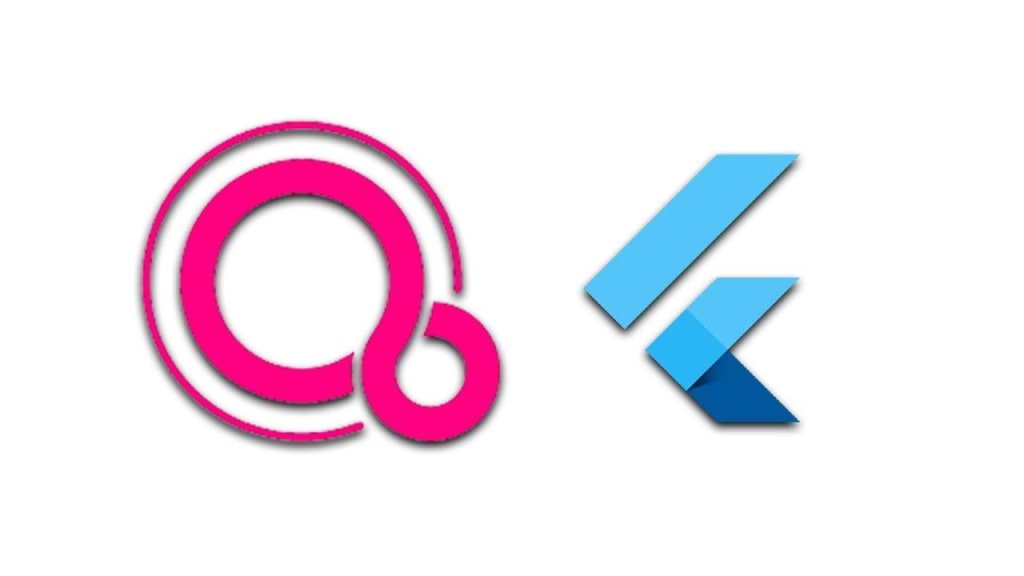Are Flutter and Fuchsia Going to Replace Operating Systems in The Future?
Future of Flutter and Fuchsia

I believe you have all heard applause from Flutter recently. Since its establishment, it has become really popular. Many technical influencers have been saying that flutter will grow in the future. But Google did not stop there.
After Flutter, Google's Fuchsia has attracted more and more recognition. Google Fuchsia was born in 2016 when Google first released its innovative operating system project on GitHub.
According to the preliminary evaluation of the industry media, the concept of the new operating system is to create a "universal" working system that you can use concurrently on all platforms, such as smartphones, tablets, etc.
Fuchsia is not rooted to Linux. Microsoft, as well as Apple, apply Linux to create a common running system. Google created its microkernel called Zircon from the ground up.
Developers are interested in documentation. The Fuchsia operating system supports darts. Yes, the language used by Flutter to build apps is the same.
Let us have a deeper understanding of fuchsia and what it will prepare for us in the future.
What is Google Fuchsia?
The Google Fuchsia working system is created to present the most efficient and effective functions for all platforms. It can operate on any processor structure. Google intends to make it operate on all laptops and personal computers. Google is also working on the Internet of Things and is making it cooperative with smart home devices.
The prospect with Flutter
As you all might be aware, Flutter can already run perfectly on Android and iOS. Now that we know that Fuchsia is compatible with Dart, it is reasonable to expect Flutter to cooperate with Fuchsia.
Fuchsia is so different because it can operate on any processor structure. Fuchsia can transform the way we interface with devices as if they use the corresponding operating system.
The advantages over Android, such as better overall performance, battery life, and possibly even running on a custom Google chip they are experimenting with.
Flutter is identified for cost-saving due to its unique codebase development and hot reload function on different mobile app platforms. In the future, if developers can share twice the capabilities of Flutter and Fuchsia, they will be able to run applications on either platform. As a smart home with the least investment and the shortest time.
Special features of Fuchsia:
Fuchsia provides an amazing user interface.
One of the most important things you will change is the material design in the Google operating system. Beautiful UI elements include stunning backgrounds, notifications, buttons, etc. This allows developers to drag and drop the home screen and customize it simply.
Cross-device OS
Google Fuchsia OS is created to run on any device, from smartphones to PDAs, laptops, and tablets, with an identical user interface. Cross-device compatibility allows developers to apply a single code base to build applications and control them on various devices.
Assistant Friendly
Google Fuchsia is composed to build Google Assistant, making it an extra assistant more pleasant than Android OS. Google Fuchsia will make use of the app drawers, manage the camera, and the on-display screen API authentication to apply features.
Will Fuchsia succeed in replacing Android and Chrome OS?
After Google launched the Fuchsia OS home security design for Pixelbook, you can consider replacing Android and Chrome in the future. Google's standard Flutter-based operating system applies microchips to reduce workload and improve performance.
Unlike Linux, Fuchsia comes pre-installed with data that develops the payload size, it is manageable and very flexible, and developers can develop software from scratch.
Previously, Google had released Android, and the open source Chrome operating system had major customer privacy and safety issues. Therefore, it makes sense for Google to create a performing system that is more managed and regulated by the origin company.
In short, the running system's future looks very bright because Fuchsia's apps are the same as we thought. Of course, even if the final release will be successful, it is too early to say. Or leave. We only saw Fuchsia operating on the Android emulator for the first time and only examined the console without GUI.
I would be astonished if Fuchsia runs on a production-ready device for at least the next two years, but I look forward to testing it on a dynamic design for the first time. So if you want to create unique and feature rich mobile applications then you should get-in-touch with the best flutter app development company and hire flutter developers from them as per your requirements.
About the Creator
Aditya Goswami
I'm technical writer with experience in IT industry. have a strong understanding of complex technical concepts and the ability to translate them into clear, concise, and easy-to-understand documentation or blogs.





Comments
There are no comments for this story
Be the first to respond and start the conversation.